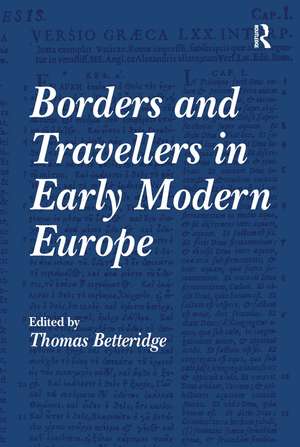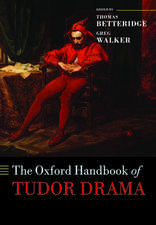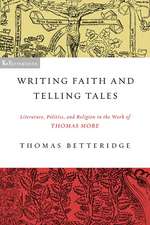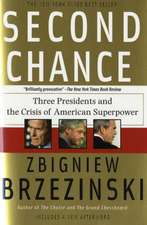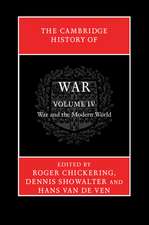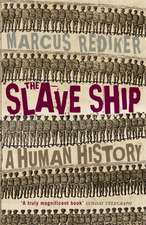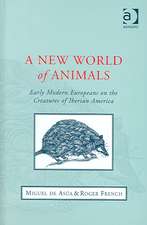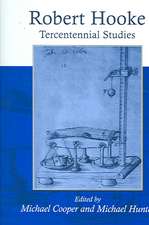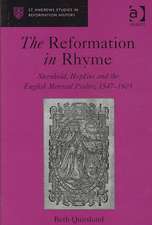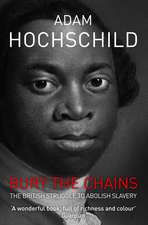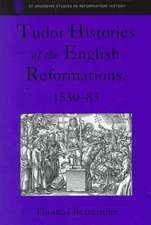Borders and Travellers in Early Modern Europe
Editat de Thomas Betteridgeen Limba Engleză Hardback – 22 aug 2007
Preț: 819.48 lei
Preț vechi: 1140.24 lei
-28% Nou
Puncte Express: 1229
Preț estimativ în valută:
156.81€ • 170.86$ • 132.13£
156.81€ • 170.86$ • 132.13£
Carte tipărită la comandă
Livrare economică 23 aprilie-07 mai
Preluare comenzi: 021 569.72.76
Specificații
ISBN-13: 9780754653516
ISBN-10: 075465351X
Pagini: 208
Dimensiuni: 156 x 234 mm
Greutate: 0.43 kg
Ediția:1
Editura: Taylor & Francis
Colecția Routledge
Locul publicării:Oxford, United Kingdom
ISBN-10: 075465351X
Pagini: 208
Dimensiuni: 156 x 234 mm
Greutate: 0.43 kg
Ediția:1
Editura: Taylor & Francis
Colecția Routledge
Locul publicării:Oxford, United Kingdom
Cuprins
Contents: Introduction: borders, travel and writing, Tom Betteridge. Part I Borders: Highways, hospitals and boundary hazards, Margaret Healy; Alien desires: travellers and sexuality in early modern London, Duncan Salkeld; Rogue traders: national identity, empire and piracy 1580-1640, Claire Jowitt. Part II Europe: Life and death on the Habsburg-Ottoman frontier: Bálint Balassi's 'In Laudem Confiniorum' and other soldier-songs, Mike Pincombe; Unwanted travellers: the tightening of city borders in early modern Germany, Maria R. Boes; Translation and the migration of texts, Andrew Pettegree. Part III Travellers: 'Idiote': politics and friendship in Thomas Coryate, David J. Baker; Returning from Venice to England: Sir Henry Wotton as diplomat, pedagogue, and Italian cultural connoisseur, Melanie Ord; Sacred cannibals and golden kings: travelling the borders of the New World with Hans Staden and Walter Ralegh, Neil L. Whitehead. Afterword: Did cannibals have a Renaissance?, Andrew Hadfield; Index.
Notă biografică
Dr Thomas Betteridge is from Oxford Brookes University, UK.
Recenzii
’The collection is a worthy addition to Ashgate's catalog, presenting important and thoughtful scholarship on early modern European crosscultural encounters and deploying the border in useful and sometimes innovative ways... It will be especially useful to those who continue to work with early modern travel and travel writing as well as those interested more generally in early modern cultural studies and questions of difference.’ Renaissance Quarterly ’[a] rich and challenging collection...’ Review of English Studies
Descriere
Early modern Europe was obsessed with borders and travel, concepts that appealed and appalled in equal measure. Adopting a broad cultural approach, this collection presents a series of essays dealing with travel in the near east, Venice and Germany, travel writing and texts across Europe, and specific border zones, such as the Irish Pale and the border between Christians and Turks. Through a shared awareness of the way in which travelling and border crossing in the early modern world inevitably raised questions about identity, order and power, the contributors to this volume underline the shifting and uncertain nature of borders and travelling, and offer a fascinating insight into the cultural and social world of early modern Europe.
